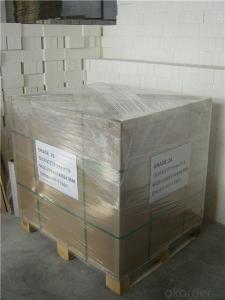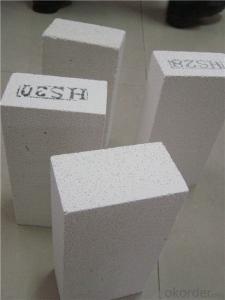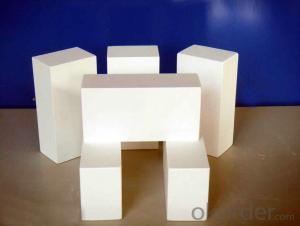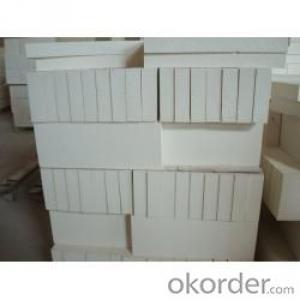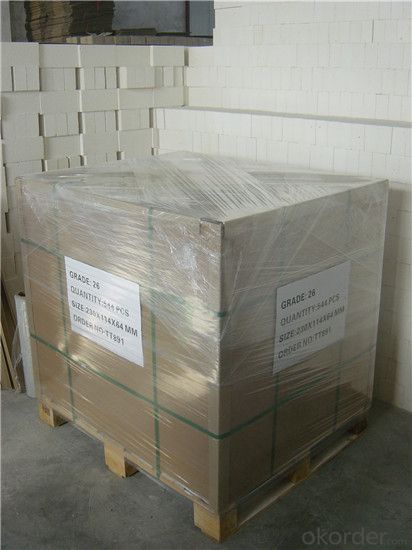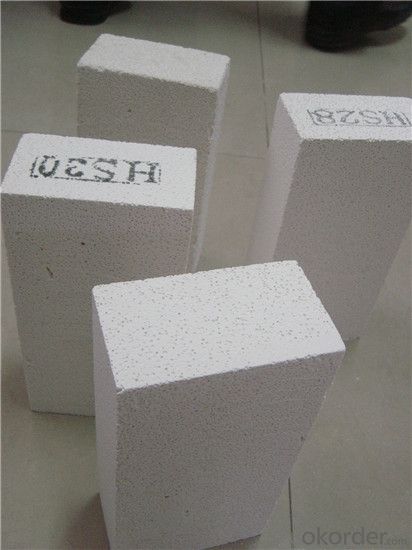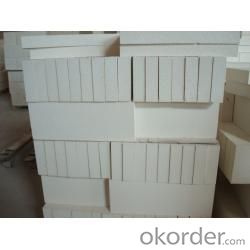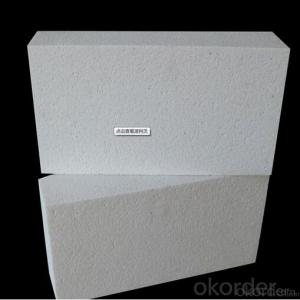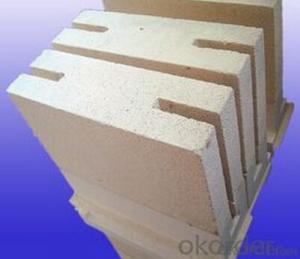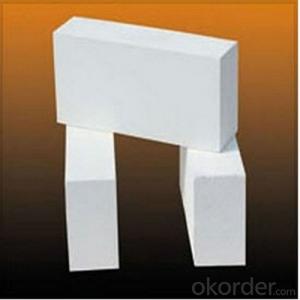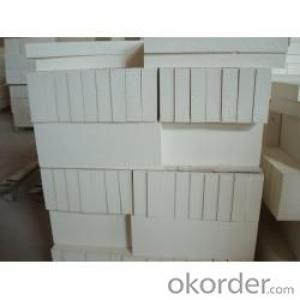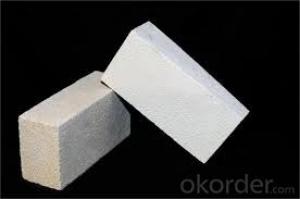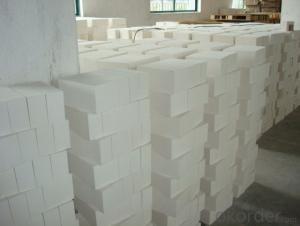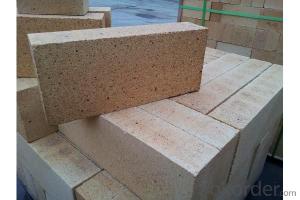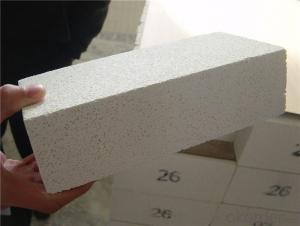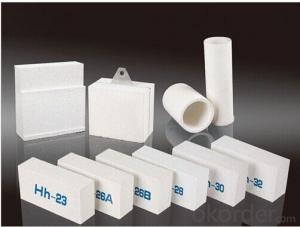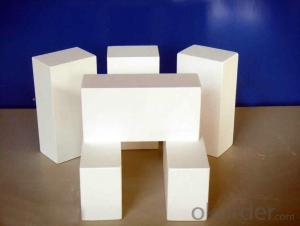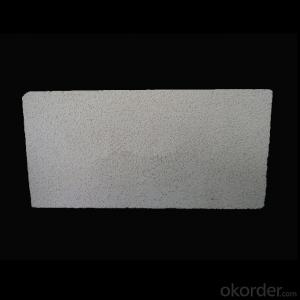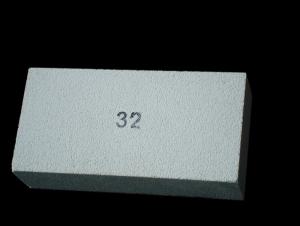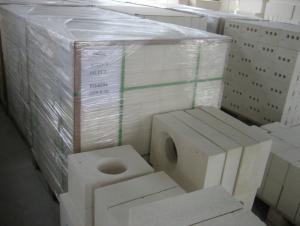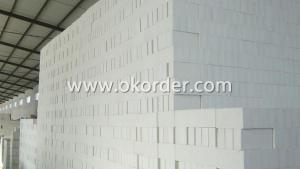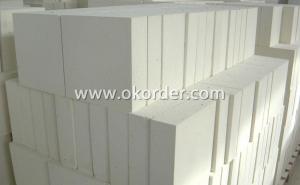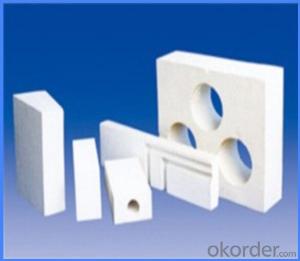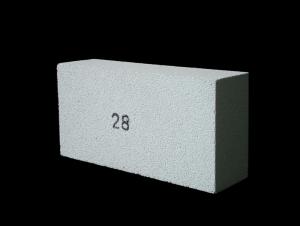High-Quality Insulating Fire Brick - Sintered Mullite Fire Lining Brick
- Loading Port:
- Tianjin
- Payment Terms:
- TT or LC
- Min Order Qty:
- 3 m.t.
- Supply Capability:
- 1000 m.t./month
OKorder Service Pledge
OKorder Financial Service
You Might Also Like
Thermal Insulation Fire Clay Brick
CNBM conforms strictly to the requirements of ISO 9000 quality control system during the production. MSDS is also available if you want. The thermal insulation fire clay brick meet with the requirements of ASTM & JIS standards. So please stay cool with our quality.
Application
Insulating Fire Brick are used for the lining of converter, alternating current arc furnace, direct Current arc furnace and the ladle slag line, etc.
Company Advantage
(1)Long Insulating Fire Brick manufacture history: 25 years manufacturer
(2)Advanced equipment
(3)Diversification of production standards: ISO ANSI FEPA JIS ASTM
(4)Flexible payment: T/T L/C D/P D/A
(5)Professional marketing team and after-sale service
(6)Free sample
Insulating Fire Brick main feature:
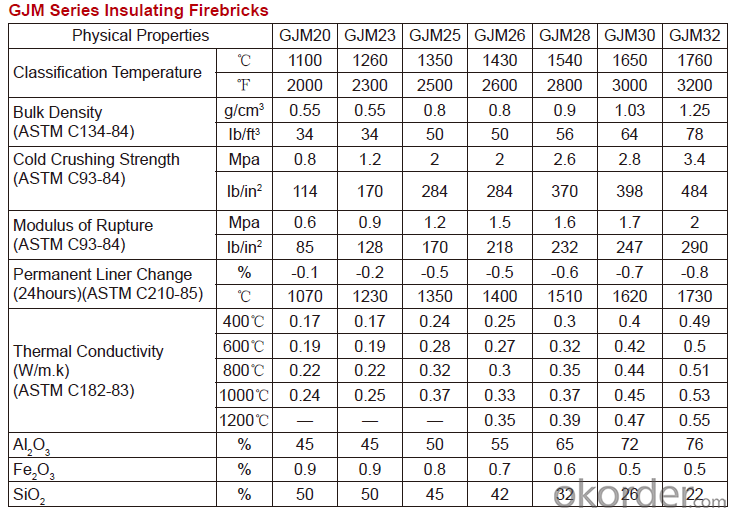
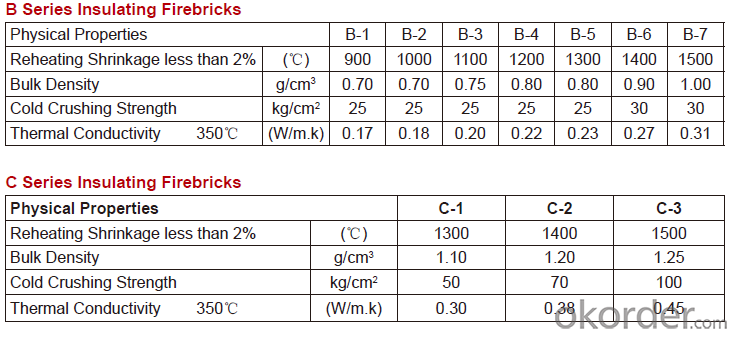
Equipment
1 unit of Ceramic Abrasive (SG Abrasive) pilot production line
2 units of Compact grain Abrasive pilot production lines
1 unit of high-end coated abrasives (abrasive cloth) production line
2 units of Boron Carbide production lines
3 large flexible crushing and sieving lines for grit production lines
2 units of 2000KVA furnaces for Boron Carbide fusion
6 units of 5000KVA-10000KVA dumping type electric arc furnaces for Brown Fused Alumina fusion
FAQs
Q1 What’s the transport method?
A1 FCL delivery goods with wooden pallet or wooden case by sea; If LCL delivery, must with wooden case; Sometimes need open top, flat rack or bulk cargo.
Q2 What’s the required payment term?
A2 Generally 30% TT as the prepayment, 70% TT before delivery. If need, 100% Irrevocable Letter of Credit or negotiation.
Q3 Which country are our products exported to?
A3 Apart from entire Chinese market, the US, Russia, Japan, Korea, Australia and some Southeast Asian Nations.
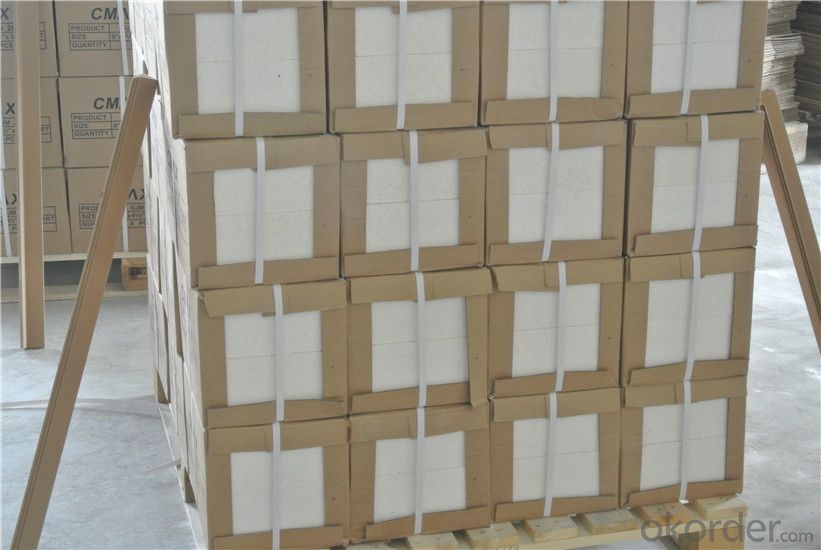
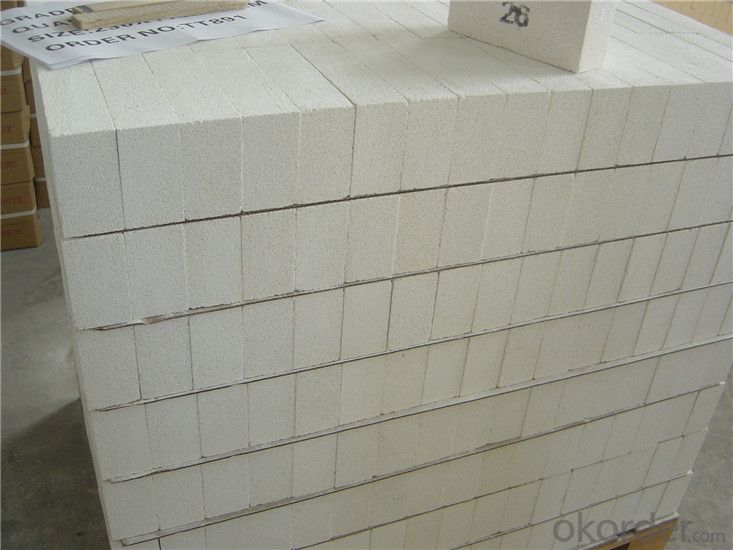
- Q: Are insulating fire bricks resistant to thermal expansion or contraction?
- Indeed, insulating fire bricks exhibit a remarkable resistance to thermal expansion and contraction. These bricks are composed of materials possessing minimal thermal conductivity, enabling them to endure elevated temperatures without experiencing substantial expansion or contraction. This characteristic renders them exceptionally well-suited for scenarios necessitating thermal stability and insulation, including kilns, furnaces, and various high-temperature settings.
- Q: Can insulating fire bricks be used in refractory mortar?
- Yes, insulating fire bricks can indeed be used in refractory mortar. Insulating fire bricks are lightweight and have low thermal conductivity, which makes them ideal for applications where heat insulation is required, such as in kilns, furnaces, and other high-temperature environments. Refractory mortar, on the other hand, is specifically designed to withstand high temperatures and provide a strong bond between fire bricks or other refractory materials. By using insulating fire bricks in refractory mortar, you can achieve both heat insulation and structural integrity in your application.
- Q: Can insulating fire bricks be used in the construction of flue gas ducts?
- Yes, insulating fire bricks can be used in the construction of flue gas ducts. These bricks are designed to withstand high temperatures and have excellent insulation properties, making them suitable for lining flue gas ducts where heat retention and energy efficiency are important.
- Q: Do insulating fire bricks have good insulation performance at high temperatures?
- Yes, insulating fire bricks have excellent insulation performance at high temperatures. These bricks are designed to withstand extreme heat and provide effective insulation, making them ideal for applications such as kilns, furnaces, and other high-temperature environments.
- Q: Are insulating fire bricks resistant to acid or alkali attacks?
- Insulating fire bricks are generally resistant to acid attacks, as they are made from materials such as alumina and silica, which have high resistance to acids. However, their resistance to alkali attacks may vary depending on the specific composition of the bricks and the concentration of the alkali solution. Some insulating fire bricks may exhibit good resistance to alkali attacks, while others may be more susceptible to degradation in the presence of alkali substances. It is important to consult the manufacturer or refer to the specific product specifications to determine the level of resistance to acid or alkali attacks for a particular type of insulating fire brick.
- Q: Are insulating fire bricks resistant to cracking under pressure?
- Yes, insulating fire bricks are resistant to cracking under pressure. These bricks are specifically designed to withstand high temperatures and mechanical stress. They are made from lightweight materials with low thermal conductivity, such as ceramic fiber or lightweight aggregates, which allow them to retain their structural integrity even when subjected to pressure or thermal expansion. Additionally, insulating fire bricks often have a high percentage of alumina content, which enhances their strength and resistance to cracking. These properties make them an ideal choice for applications that require insulation and structural stability, such as furnaces, kilns, and high-temperature industrial processes. However, it is important to note that excessive pressure or sudden temperature changes can still cause damage to insulating fire bricks, so proper installation and maintenance guidelines should be followed to ensure their longevity and performance.
- Q: How do insulating fire bricks compare to ceramic fiber insulation?
- Insulating fire bricks and ceramic fiber insulation are both commonly used in high-temperature applications, but they have different properties and advantages. Insulating fire bricks, also known as refractory bricks, are made from a combination of refractory clay and other materials. They are dense and heavy, providing excellent thermal conductivity and insulation. Insulating fire bricks are known for their durability and ability to withstand high temperatures, making them suitable for use in furnaces, kilns, and other industrial applications. On the other hand, ceramic fiber insulation is made from a lightweight material composed of alumina-silica fibers. This type of insulation is highly flexible and can be easily shaped or molded to fit various applications. Ceramic fiber insulation is known for its excellent thermal insulation properties and low thermal conductivity. It is also resistant to thermal shock and can withstand rapid temperature changes. In terms of insulation performance, both insulating fire bricks and ceramic fiber insulation have their advantages. Insulating fire bricks have higher thermal conductivity, which means they can transfer heat more efficiently. This property makes them ideal for applications that require rapid and uniform heat distribution. Ceramic fiber insulation, on the other hand, has lower thermal conductivity, making it more effective at preventing heat transfer. In terms of installation and maintenance, ceramic fiber insulation is easier to handle due to its lightweight and flexible nature. It can be easily cut and shaped to fit complex surfaces, reducing the need for specialized tools or equipment. Insulating fire bricks, on the other hand, are heavier and more rigid, requiring more effort and precision during installation. Overall, the choice between insulating fire bricks and ceramic fiber insulation depends on the specific requirements of the application. Insulating fire bricks are more suitable for applications that require high thermal conductivity and durability, while ceramic fiber insulation is ideal for applications that require excellent thermal insulation and flexibility.
- Q: Are insulating fire bricks suitable for use in coke ovens?
- Insulating fire bricks are not suitable for use in coke ovens. Coke ovens require bricks that can withstand extremely high temperatures and harsh chemical environments. Insulating fire bricks are designed to provide thermal insulation and are not able to withstand the heat and chemical exposure that occurs in coke ovens. Therefore, it is crucial to use refractory bricks specifically designed for coke ovens, which have high resistance to temperature, chemical attacks, and thermal shock. These refractory bricks are typically made from materials such as silica, alumina, and carbon, which can withstand the harsh conditions inside the coke ovens.
- Q: Energy saving bricks or bricks?
- Energy saving brick may be cement slag, or cement, water residue, cement, coal ash, etc. overview
- Q: Can insulating fire bricks be used in the construction of combustion chambers for rocket engines?
- Insulating fire bricks are capable of being utilized in the construction of rocket engine combustion chambers. They are specifically engineered to endure elevated temperatures and provide exceptional thermal insulation. This makes them an ideal option for situations involving extreme heat, such as rocket engine combustion chambers. The main purpose of insulating fire bricks in a rocket engine's combustion chamber is to shield the surrounding structure from the intense heat generated during combustion. By offering insulation, these bricks aid in minimizing the transfer of heat to the outer walls of the combustion chamber, thus averting damage and ensuring the chamber's structural integrity. Moreover, insulating fire bricks possess a lightweight composition and exhibit low thermal conductivity, enabling them to effectively retain heat within the combustion chamber. This characteristic is vital for maintaining optimal combustion efficiency and enhancing rocket performance. In addition to their thermal properties, insulating fire bricks are recognized for their durability and resistance to thermal shock. This attribute is particularly valuable in rocket engine applications where rapid temperature fluctuations can occur, such as during ignition or shutdown sequences. The ability of insulating fire bricks to endure such thermal stresses is imperative for the dependable operation and extended lifespan of the combustion chamber. Overall, insulating fire bricks are a suitable choice for constructing combustion chambers in rocket engines due to their ability to withstand high temperatures, provide thermal insulation, possess a lightweight nature, and exhibit durability.
Send your message to us
High-Quality Insulating Fire Brick - Sintered Mullite Fire Lining Brick
- Loading Port:
- Tianjin
- Payment Terms:
- TT or LC
- Min Order Qty:
- 3 m.t.
- Supply Capability:
- 1000 m.t./month
OKorder Service Pledge
OKorder Financial Service
Similar products
Hot products
Hot Searches
Related keywords
